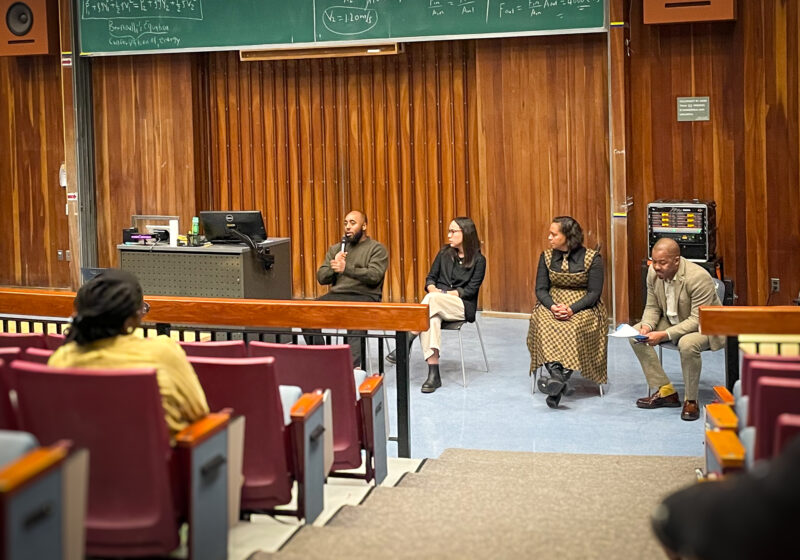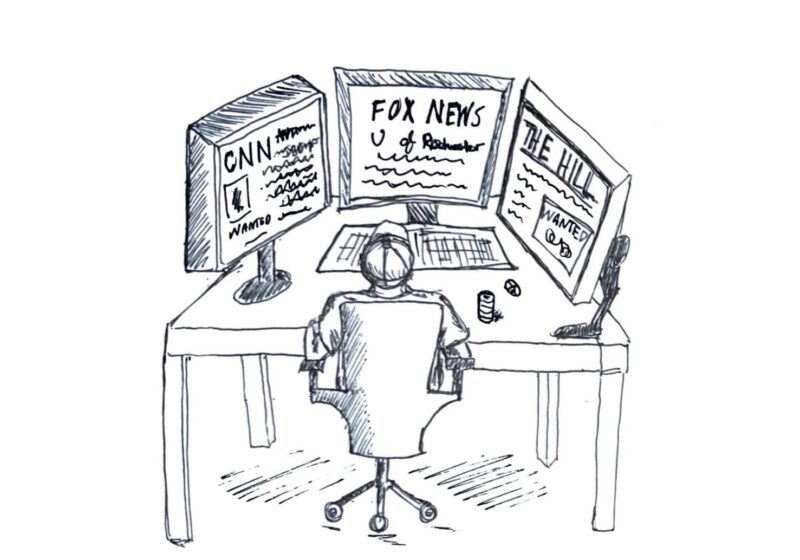We live in an age when students have easy access to A.D.H.D medication, regardless of whether they have a prescription or not. This increased availability has swept colleges across the country, including UR.a
The number of A.D.H.D. diagnoses has grown over the past few decades — 11 percent of children ages 4 to 17 have been diagnosed at some point this year. This upsurge, a 6 percent increase since the early 1990s, begs the question whether Americans have only just begun to receive the treatment they need for the pathological disorder.
To be fair, A.D.H.D certainly has a legitimate scientific basis — there is thorough evidence indicating genetic risk factors for the disorder. Additionally, recent brain imaging studies of patients have shown a deficiency in the number of receptors for the neurotransmitter dopamine, suggesting a lack thereof in neural synapses among individuals with the disorder. With these studies in mind, there is no doubt that many Americans legitimately suffer from A.D.H.D.
The root cause for the swift increase in the number of Americans with the disorder, however, may be a sociological, not biological phenomenon.
Our society expects children and adults alike to maintain a calm and focused demeanor when performing a task. As a result, we define rowdiness and a lack of attention as symptoms of a disorder, and we employ mental performance-enhancing drugs like Adderall and Ritalin to remedy those maladies. Ultimately, the skyrocketing prevalence of A.D.H.D. may draw from our concept of an ideal worker, out of touch with the realities of normal behavior in children and young adults.
The main issue that arises from this situation lies in the increasing availability of said drugs, which are typically some form of amphetamine. Although potentially dangerous, these drugs have been proven to increase dopamine in neural synapses, remedying the symptoms of the disorder.
Aside from the legitimate prescription of A.D.H.D. medication, there are many incentives driving the unnecessary diagnoses. On an institutional level, the pharmaceutical industry generated $4 billion of revenue from A.D.H.D.-related prescriptions in 2011 alone. This financial potential may tempt both doctors and drug companies to excessively prescribe the drugs.
On an individual level, medication to treat A.D.H.D often is seen as a quick fix to any number of behavioral issues. Overwhelmed parents and caretakers of rambunctious children may be enticed to use these drugs as an easy solution to their problems. Unfortunately, this leaves us with over 7 million children and young adults exposed to potentially dangerous Schedule 2 pharmaceuticals.
As this increasingly medicated generation grows older, there is a corresponding rise in college students abusing drugs like Adderall. Since so many college students have unfettered access to prescriptions of these substances, unauthorized use, for both academics and recreation, is at an all-time high.
It is becoming increasingly apparent these drugs are often used by desperate college students to enhance academic performance. In many of these cases, illicit academic users exhibit no actual symptoms of A.D.H.D or learning deficiencies. According to New York Times columnist Roger Cohen, “Adderall has become to college what steroids are to baseball: an illicit performance enhancer for a fiercely competitive environment.”
The reason why students without prescriptions are so easily obtaining the drugs is because those with the prescriptions are highly inclined to sell their pills for massive profit. A college-based study found that more than 50 percent of students prescribed medications for A.D.H.D were approached to sell, trade, or give away their medication last year. Further studies indicated that nearly one-third of undergraduates did sell their prescriptions.
This very phenomenon occurs at UR as well. One student anonymously said that “everyone knows somebody with a legitimate Adderall prescription — they’re more than willing to pawn off a pill or two for a fast buck.”
This drug trade is occurring relatively unnoticed by the administration, and we need to ask ourselves as a community whether it’s acceptable that dangerous A.D.H.D medication is illicitly bought and sold so easily on our campus.
We hope that UR pursues dialogue and action on this issue as vigorously as it does for many other, often less harmful, illicit substances.




